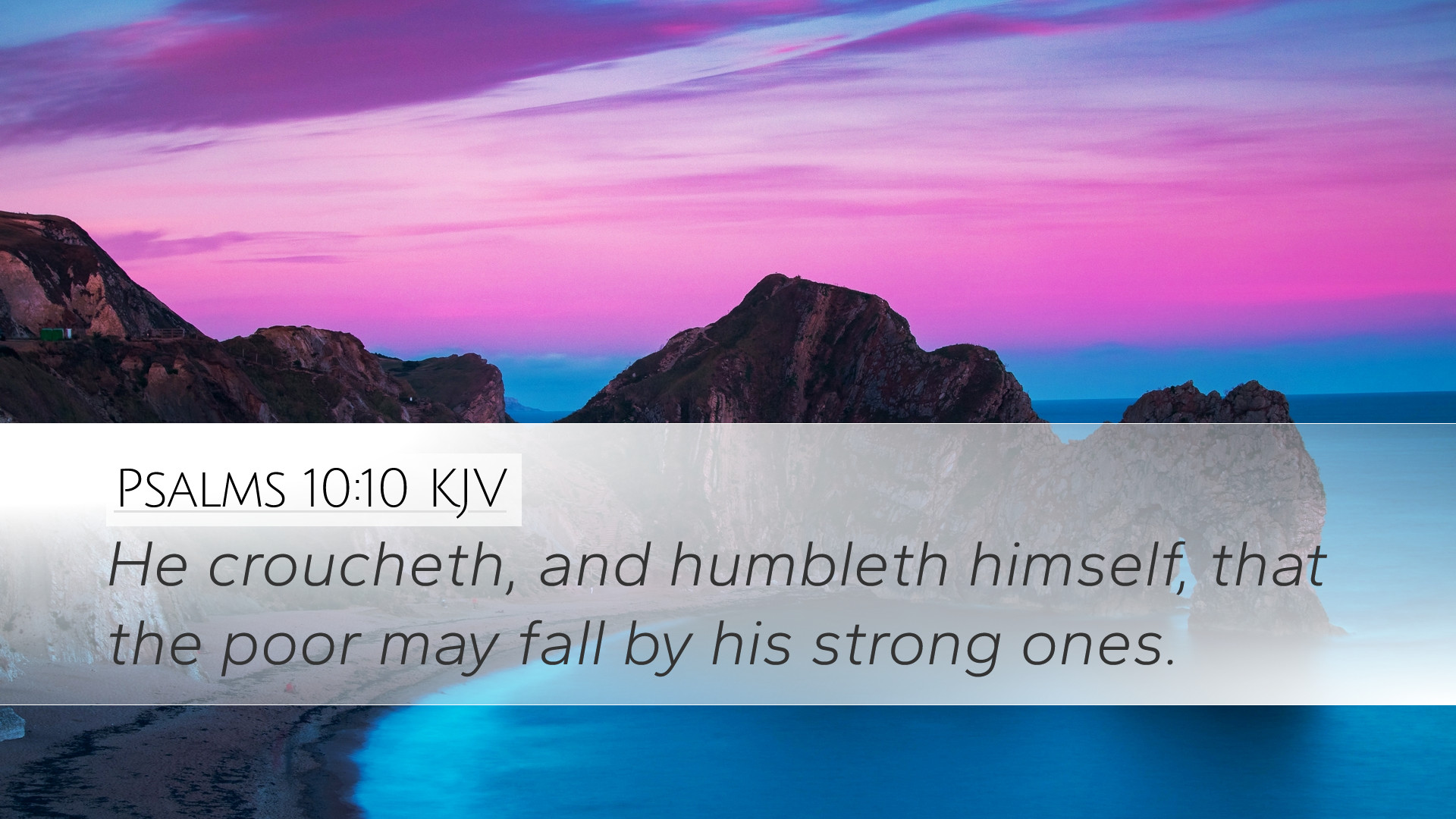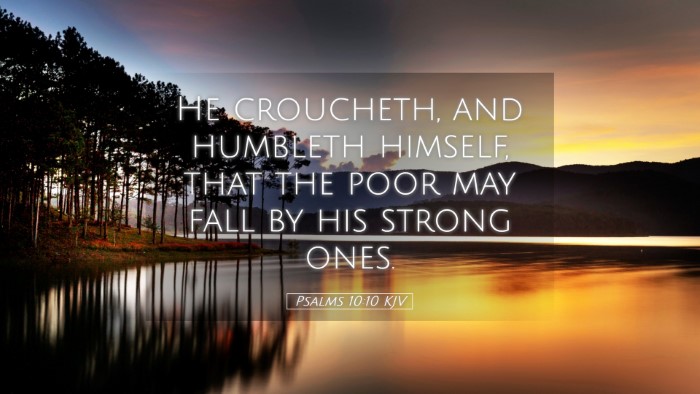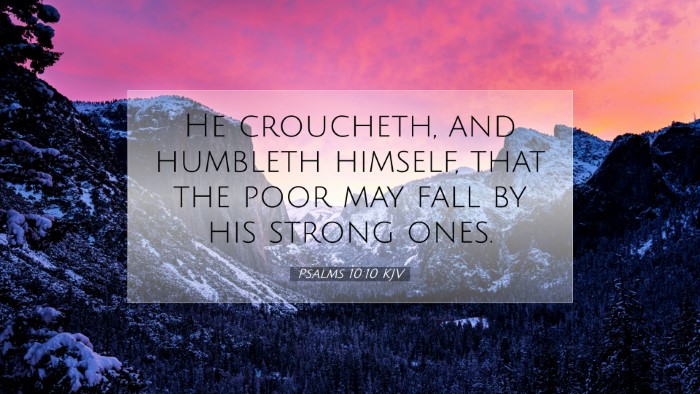Psalms 10:10 - Commentary and Insights
Psalm 10 is a poignant reflection on the plight of the oppressed and the apparent silence of God in the face of injustice. Verse 10 states:
"He croucheth, and humbleth himself, that the poor may fall by his strong ones."
This verse contains profound theological implications regarding the nature of evil and the response of God to human suffering. The insights below are gathered from notable public domain commentaries.
Context of the Psalm
The psalmist, traditionally attributed to David, grapples with the troubling reality of wickedness in the world. The opening verses highlight the arrogance of the wicked, who seem to thrive while the innocent suffer. The verse serves as a turning point, depicting the actions of the oppressor and the resulting despair faced by the vulnerable.
Exegesis of Psalms 10:10
In examining this verse, several elements emerge that merit detailed consideration:
-
The Character of the Oppressor:
The phrase "He croucheth" suggests a predatory stance, akin to that of a lion preparing to pounce on its prey.
As Matthew Henry notes, this imagery illustrates how the wicked stalk their victims, embodying deceit and cunning.
-
The Humility of the Oppressor:
The word "humbleth" is paradoxical when describing the wicked.
Albert Barnes points out that this humility is not a genuine virtue, but rather a tactic employed by the oppressor to exploit the weak.
This insight emphasizes the deceptive nature of the wicked; they feign a lowly status to manipulate the circumstances in their favor.
-
The Vulnerability of the Poor:
The phrase "that the poor may fall" highlights the theme of vulnerability among those who lack power.
Adam Clarke explains that the "poor" represent more than just the economically disadvantaged; they symbolize the morally and spiritually oppressed, often victims of systemic injustice.
-
The Role of Power:
The term "strong ones" denotes those who misuse their power to exploit the weak.
As noted by Matthew Henry, such individuals leverage their strength in a way that exacerbates the suffering of the innocent, ultimately showcasing the corruption inherent in such systems of power.
Theological Implications
This verse opens up discussions around several theological themes:
-
The Problem of Evil:
The presence of wickedness leads to a vital theological inquiry: Why do the wicked prosper, and the righteous suffer?
Albert Barnes suggests that the existence of such injustice tests the faith of believers and highlights the necessity of ultimate divine justice.
-
The Nature of God’s Justice:
The apparent inaction of God amidst such oppression can lead to despair.
Adam Clarke stresses that the faithful are called to trust in God's ultimate judgment, which may not be immediately apparent but is assured in the totality of scripture.
-
Call to Action:
This verse serves as a reminder of the Christian duty to stand against injustice.
Matthew Henry encourages believers to advocate for the marginalized, recognizing that they are called to reflect God's compassion and justice in a world rife with exploitation.
Practical Applications
For pastors, students, and scholars, Psalms 10:10 not only provides historical insight but also offers practical guidelines for contemporary ministry:
-
Awareness of Injustice:
A call to be vigilant about the injustices in society and to challenge systems that perpetuate oppression, particularly against the vulnerable.
-
Empathy for the Oppressed:
Developing a pastoral response that empathizes with the struggles of the marginalized, recognizing that they often feel abandoned in their suffering.
-
Advocacy:
Encouraging congregations to engage in acts of service and advocacy for those who are disenfranchised. This can manifest through charity work, social justice initiatives, and legislative lobbying for humane policies.
Conclusion
Psalms 10:10 reveals the dynamics between the oppressor and the oppressed, and the often perplexing nature of divine justice.
The insights distilled from the commentaries of Matthew Henry, Albert Barnes, and Adam Clarke remind us of the biblical mandate to seek justice and extend compassion.
As we meditate on this verse, may we be inspired to act justly, advocate for the poor, and trust in the ultimate righteousness of God.


